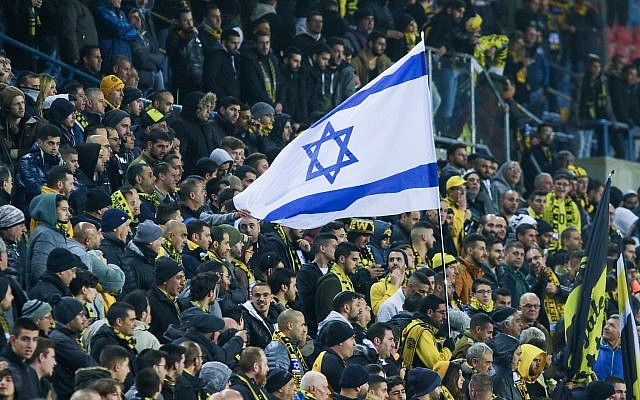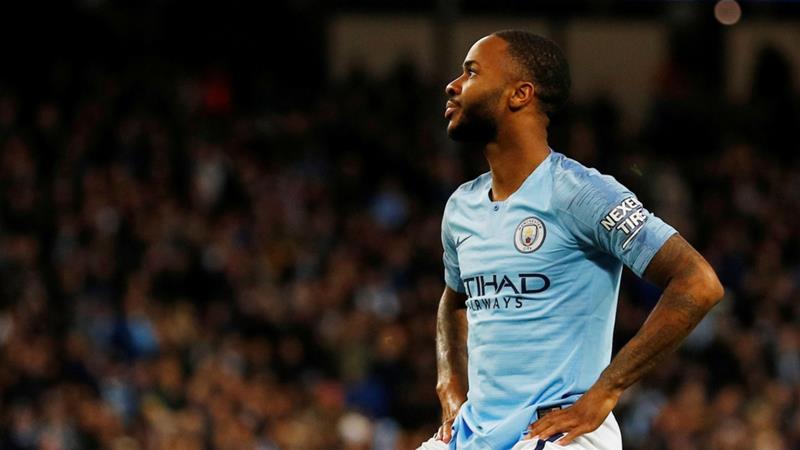Racism, xenophobia, and other forms of discrimination have been around for as long as humans have been around. But now in the year 2018, we expect to see it much less. To the footballing world’s surprise, during Chelsea’s 2-0 upset over Manchester City, Raheem Sterling was racially abused by a group of Chelsea fans. Just days before that, Arsenal striker Pierre-Emerick Aubameyang had a banana thrown at him by a Spurs fan. During Chelsea’s Europa League match against MOL Vidi, a group of Chelsea fans starting chanting an antisemitic song. And in South America, we witnessed the violence that surrounded the Copa Libertadores.
Whether we like it or not, violence, racism, and other forms of discrimination are still prevalent in the soccer world.
Police have interviewed a person under caution following the alleged racial abuse of Manchester City winger Raheem Sterling at Stamford Bridge on December 8th.
[via @SkySportsNews] pic.twitter.com/USxydx4ns5
— City Report (@cityreport_) December 21, 2018
Where Does it Come From?
It is shocking to believe that prejudice and discrimination like that are still happening at a global stage, not only at clubs like Chelsea and Tottenham but around the world. In the December 11th podcast of the Men in Blazers, Michael Davies, “Davo,” shared his ideas on the issue:
[They are] screaming with rage at [Sterling], whose only crime is that he is really good at football and he is wearing a shirt that is a different shade of blue than their favorite team. That is mindblowing to me that this still happens and is okay. . .
I think we have to start there, football. That hate, any form of hate at a football ground, any form of abuse. . . we have to now get to a point where the hate has to stop. The double fisted wanker signs at players taking corners, the vial abuse that is thrown at players and at referees by grown men and women at games, it really has to stop. And from that point. . . the idea that a fan is basically yelling a racial epitaph at an opposing player is so disgusting, and so embarrasing. . .
And the only way to really cut it out, because you won’t weed every racist out, honestly, we have to stop allowing people to yell abuse at players. It just has to stop.
This is the good that can come out of this moment. The hate being screamed at players just really has to stop.
Which then brings up the question, is there room for hate in soccer?
Is it Wrong to Hate a Team?
Because I grew up playing soccer in the Seattle area, I grew up as a Seattle Sounders fan. Though I didn’t really follow the team that closely, I would proudly claim the USL Sounders were my team. It wasn’t until I became older and Seattle moved into MLS that I became the diehard fan that I am now. And with that fandom came a distaste for Seattle’s biggest rivals, the Portland Timbers.
I knew I wasn’t supposed to like Portland. The cities themsevles, away from sports, have a rivalry. But when I moved to Portland to start college, that knowing distaste quickly became a feeling that I can only describe as hatred. I get an emotional reaction when I see a shade of green that matches the Timbers jersey. When I see a Timbers Army scarf at the store or at a thrift shop I scoff. I laugh when Portland loses important matches. I hate the club.
But is that wrong? My hatred for the Timbers isn’t something that can be wished away and it isn’t something that I want to be wished away. It is part of being a Sounders fan.
Sebastian Blanco didn't want to face Cristian Roldan again on Sunday anyway: pic.twitter.com/tOBsmLV8o3
— Sounders Matchday (@LIVESounders) June 22, 2017
When is Hate Okay?
Our hatred for other soccer clubs and players can’t blind us to our common humanity. If I see a Timbers player on the street in downtown Portland, I won’t react in anger or hostility. They deserve to be treated as a human being. Even if they wear the wrong shade of green.
We need to draw a line. Sounders fans will always hate the Timbers and vice versa. The same with River Plate and Boca Juniors, as well as Arsenal and Tottenham. But if this hate creates a space for violence, racism, and discrimination, there needs to be a way to stop it. Individual clubs and international organizations can do all they want, but the majority of the work will come down to us as the fans, as well as journalists.
Taking Care of Ourselves
Firstly we need to keep ourselves in check. The rivalries that come with supporting a team bring up honest and raw emotions. I can yell and scream and curse at players for diving, but I cannot let that segway into blind hatred. That can only lead to bigoted language or gestures. A perfect example of this is LAFC in Major League Soccer.
In their first ever playoff match, LAFC were down late 3-2 to RSL who would eventually upset the expansion side and win by the same scoreline. Frustration and anger boiled over and reportedly 80% of the fans started chanting the infamous anti-gay puto chant.
Fans doing the "puto" chant at #RSL keeper Nick Rimando and are now throwing things again at RSL and Rimando. Yikes. #LAFCvRSL
— Michael J. Duarte (@michaeljduarte) November 2, 2018
The anger that is supposed to fuel rivalries boiled over into hatred with use of violence and discriminatory words against the other team. As soccer fans, we cannot let ourselves cross that line.

Taking Care of Others
It is also our job as soccer fans to not let others cross the line. We cannot and should not idly stand by and watch as other fans scream, chant or sing racist, anti-gay, or anti-Semitic words. This is not to point blame at those that were present during the puto chants, the racist outbursts, etc. and didn’t do anything. I would have been too shocked to do anything if I was in their position. Instead, we must prepare ourselves to be able to take action against these sort of things.
That doesn’t mean we have to confront people head on when the chants and verbal abuse starts. You can get an usher’s attention and tell them what is happening. Stadiums in the United States and across most of Europe should have a zero-tolerance mentality to discrimination.
Fans can also be preemptive and band together as supporters groups. When things like the puto chant begin, supporters groups can quickly squash it. That obviously didn’t work for LAFC back on November 1st, but if supporters groups become committed to being nondiscriminatory in they way they cheer (and jeer), incidents such as the puto chant and Chelsea fans’ anti-Semitic chant will begin to fade away.
"It's a cancer, Rebecca. And cancers unless you stay on top of them, unless you are vigilant, will come back, and it's starting to creep into English football. And it's such a shame."
Rebecca Lowe and Robbie Earle have an honest discussion about racism in football. pic.twitter.com/WdxM2oO9mC
— NBC Sports Soccer (@NBCSportsSoccer) December 9, 2018
Hating a different team is not only part of being a soccer fan. It is part of being a sports fan. But it is when that hatred prompts us to dehumanize other players by yelling discriminatory language that we have to check ourselves. Is there room in the beautiful game for hate? Of course, there is. But is there room for hate-fueled rage? Never.


